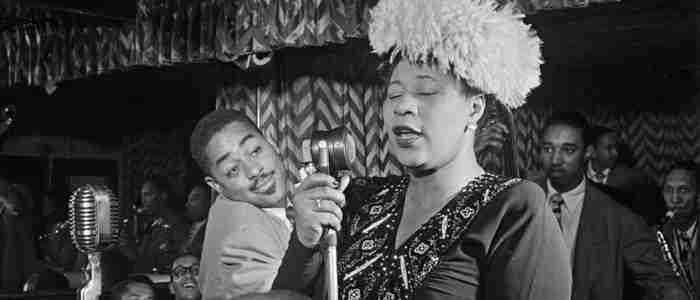Learning jazz improvisation can feel overwhelming. The sheer amount of information available can make it difficult to know where to begin. However, the most effective approach is to learn the way the jazz greats did: by listening intently and building upon the foundations laid by their heroes.
While modern resources like fake books and play-along tracks are readily available, they weren’t for the pioneers of jazz. Musicians like Charlie Parker and John Coltrane honed their skills by deeply listening to their influences, dissecting their playing, and then developing their own unique voices. This organic process of learning by ear, combined with consistent practice and collaboration, is at the heart of jazz improvisation.
Beyond the Notes: Immersion and Understanding
While resources like the Real Book can seem convenient, they can hinder true improvisation development. Relying heavily on transcribed solos and pre-written arrangements can stifle creativity and prevent musicians from forging their own paths. True mastery lies in understanding the underlying language and culture of jazz.
Here’s a breakdown of key steps aspiring jazz improvisers can take:
1. Immerse Yourself in the Music
Listen actively to jazz as much as possible. Load your phone with recordings, play jazz in the background while working, and dedicate focused time to exploring new artists and standards. Deep listening is the foundation upon which all else is built.
2. Embrace the Culture
Understanding the history and cultural context of jazz is crucial. Read biographies of jazz legends, delve into the stories behind iconic albums, and watch interviews to gain insights into their lives, influences, and creative processes.
3. Define Improvisation
Jazz improvisation isn’t about randomly playing notes. It’s a carefully crafted balance between preparation and spontaneous creation. Practice provides the tools, but performance is where the magic happens.
4. Structure Your Practice
Jazz improvisation practice isn’t linear. It involves continuously learning new concepts, refining old ones, and filling in knowledge gaps. A structured approach, encompassing ear training, theory, and language acquisition, is essential for consistent progress.
The Building Blocks of Improvisation
5. Approach Theory with Caution
While music theory is important, it’s just one tool. Learn the fundamentals of jazz harmony and scales, but avoid treating theory as rigid rules. Use it to inform your playing, but let your ear be the ultimate guide.
6. Visualize the Music
Translate theoretical knowledge into practical application through visualization. Train yourself to instantly recognize chord tones, scales, and progressions without conscious thought.
7. Learn Basic Piano
Even rudimentary piano skills can significantly enhance your understanding of harmony and chord voicings. A midi keyboard can be a valuable tool for exploring chords and progressions.
8. Train Your Ear
Develop your ear to recognize intervals, chords, and melodies instantly. This skill is crucial for transcribing, analyzing music, and responding spontaneously during improvisation.
9. Master Common Progressions
Familiarize yourself with common jazz chord progressions like ii-V-I and blues progressions. These patterns form the backbone of countless jazz standards.
10. Conquer the Blues and Rhythm Changes
The blues and “I Got Rhythm” chord changes are foundational to jazz improvisation. Mastering these progressions will unlock a vast repertoire of tunes.
From Foundation to Fluency
11. Learn from Recordings
Learn jazz standards directly from recordings rather than relying solely on sheet music. This process engages your ear and strengthens your musical memory.
12. Transcribe and Analyze Language
Transcribing solos of your favorite players is essential for understanding jazz language – the vocabulary of melodic phrases and rhythmic ideas that define the genre.
13. Acquire and Apply Language
Learn jazz language for common chords and progressions. Practice incorporating these phrases into your own improvisations.
The Long Game
14. Cultivate Practice Habits
Develop consistent and effective practice habits that encompass all aspects of jazz improvisation.
15. Stay Inspired
Maintain your passion for jazz by continuously exploring new music, attending live performances, and connecting with fellow musicians.
Learning jazz improvisation is a lifelong journey. Embrace the challenge, stay persistent, and enjoy the process of discovering your own musical voice.
